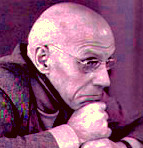Permanently Deleted
Read SEP and short works or essays by the philosophers you come across and have an interest in. When reading SEP, keep in mind that it is the mainstream academic evaluation of the topic from various angles, and that the influence of the ideas that it covers to some degree or another tracks class and prestige within the greater hierarchies of higher education and the societies that use higher education to reproduce current social conditions.
Although learning about arguments and critical analysis is very important, a lot of engaging with the large body of philosophy that exists is real labor. It takes time and energy, time and energy that a lot of working class people do not have to put into something that doesn't immediately improve material life. This time and labor includes critiquing what has already been argued ad nauseam, and it also includes the labor of others in your community willing to engage with your interpretation of these ideas and situations. There isn't really a shortcut, but if it's something that you believe to be important, like I do, there's enough information to get started without much of a push from the people around you. If anything, you will probably encounter a lot of resistance, even from "educated" people who disregard the value of asking and examining questions that might not have an answer.
Beware of treating anyone's words like gospel. Nothing will close you off from intellectual progress like dogma and disregard for the possibility of being wrong sometimes.
You might have an easier time with the Internet Encyclopedia of Philosophy.
https://iep.utm.edu/
SEP is written at a very high level - and while that's great if you have a background in or previous knowledge of concepts, IEP can be easier to grasp for those at the undergrad level or who are just starting their philosophical education.
I once took a few hours to read their article on Lacan. I also took extensive notes. It helped me a great deal.
This may be a bit “out there” as a suggestion, but I’d recommend a bit of math for anyone interested.
Depending on the math, it is a very structural node of thought. Also depending on the kind of math, you get many verbal arguments — it’s not just pages of expressions strung together by equals signs.
Something like combinatorics is good. It’s a fresh start (most people only see one or two combinatorial things if they make it to calc), focused on counting—so like poker probabilities and stuff as like “week 1” applications of the theory. Also, there’s definitely some algebraic manipulation, but at their core, most combinatorial arguments are very clearly about describing a situation just right.
I think my first combinatorics text was Brualdi, and it’s perfectly good (and was on libgen last I checked).
As I remember my philosophical education the most engaging way I learned philosophy was to learn something and then teach my fellow peers. It is known that a good way to learn is to teach, so if you come across any interesting philosophical thought, work or author, you could restate them here in your own words in this forum to foster discussion.
Revleft Radio does a lot of philosophy and Brett’s other podcasts, Red Menace and Guerrilla History also delve deeply into Marxism and anti-colonialism. The sadly defunct Red Library was the best resource I’ve ever found for introducing lots of abstruse ideas from continental philosophy. There’s also Why Theory as well as The Regrettable Century.
It really depends on what you want to know. All philosophy is written in conversation with what came before. If you want to understand the Western philosophical tradition fully, you pretty much need to start with Plato and work your way forward. If you want to understand Zizek, you probably need some Hegel, some Marx, some Lacan, and so on.
Is there a particular area of philosophy you're interested in? Phenomenology? Continental theory? That would make it much easier to make recommendations.
:thinkin-lenin: maybe you should be thinking less about figuring out a 'coursework' for yourself, and more systematising & habit-forming around reading? you can avoid absolute schlock but even fiction is gonna show you things
ive got a huge reading list too and all the theory and philosophy and shit is super daunting
im at the point where i just draw the line at reading something and that been kinda cool
This is the right way to approach this. You don't need to read things in the order that they'd be presented if you took a formal university class on the subject. Start by thinking about questions that you're interested in, and look for books that are well-reviewed, seem interesting, and hold your attention. It doesn't really matter what you read, particularly at first. Follow your interests, and read things that are engaging that deal with questions you think are important. Don't let anyone tell you you're self-educating "wrong," and don't feel like you need to read anything in particular. You'll start to get a feel for how people talk about various issues, and by following references from books you enjoy, you'll be led to similar works on similar themes. Just explore the ideas rather than think about it as pursuing a curriculum.
I would highly recommend the book Elementary Principles of Philosophy by Georges Politzer which you can find for free on the Foreign Languages Press website under foundations. It is an introduction written for a general audience that will give you a solid base from which to approach other philosophical texts. I'd also really recommend getting a solid grasp of dialectical and historical materialism before trying to dive into other philosophies. Marx laid out the foundations of a scientific approach to understanding the world in all of its aspects. If you understand how to analyze things through a Marxist lens you will be able to cut through a lot of bourgeoise, metaphysical, idealist etc. philosophy which is interesting historically but otherwise useless, or even harmful, if used as a basis for practice.
full lecture series is on youtube, very accessible dude
http://rickroderick.org/





